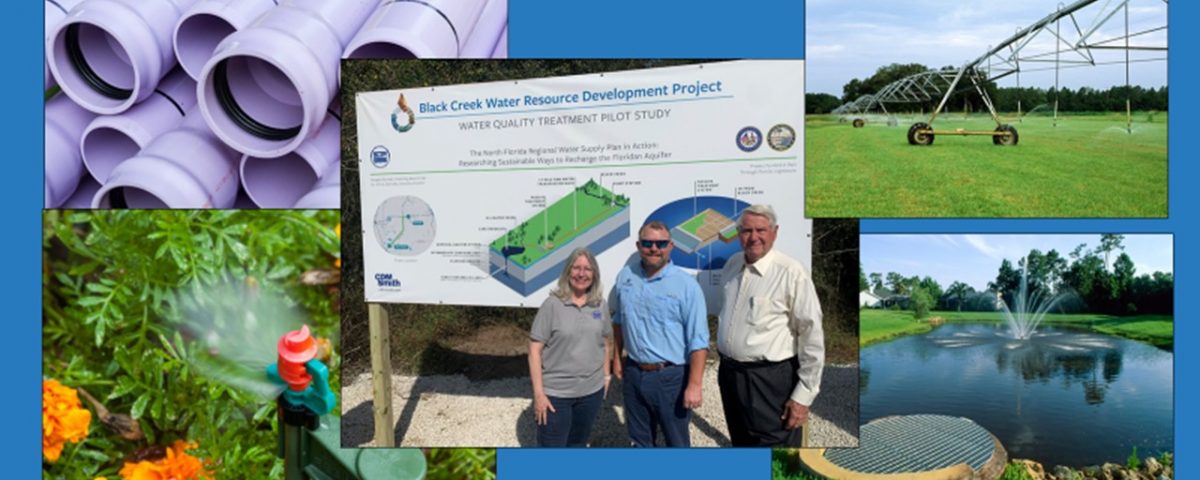District moving ahead with minimum flows and levels, strategy to protect lakes Brooklyn and Geneva

The Brooklyn-Geneva MFLs recovery strategy includes projects, such as the Black Creek Water Resource Development Project, that will help the lakes meet their adopted MFLS.
Final adoption hearing scheduled for May 11
COCOA, Fla., April 13, 2021 — The St. Johns River Water Management District is nearing completion of the process to revise minimum flows and levels (MFLs) for lakes Brooklyn and Geneva, in Keystone Heights. On Tuesday, the District’s Governing Board authorized staff to publish a Notice of Proposed Rule for the two lakes and approved a related recovery strategy. The final step in the rulemaking process will be a final rule adoption hearing, which is scheduled for May 11.

The Brooklyn-Geneva MFLs recovery strategy includes projects, such as the Black Creek Water Resource Development Project, that will help the lakes meet their adopted MFLS.
Among the most-studied lakes within the District, Lake Brooklyn, in Clay County, and Lake Geneva, in Bradford and Clay counties, are sandhill lakes within the upper Etonia Creek chain of lakes. The District is currently completing its reevaluation of minimum levels for both systems, which were originally adopted in January 1996.
Using today’s state-of-the-art evaluation technologies, such as regional and local-scale groundwater models and tools to analyze the effects of groundwater pumping, the District conducted a rigorous review, along with additional data collection and analyses, that has resulted in appropriate recommended minimum levels for lakes Brooklyn and Geneva. These MFLs, if adopted by rule, will represent the limit at which further withdrawals would be significantly harmful to the water resources or ecology of the area.
The reevaluation for lakes Brooklyn and Geneva indicates that the proposed MFLs are not being met in either lake. A recovery strategy must be approved concurrently with the revised MFLs. The recovery strategy identifies a suite of projects and measures to develop additional water supplies and other actions to achieve timely recovery to the revised MFLs.
The Brooklyn-Geneva recovery strategy includes previously identified water conservation, water supply and water resource development projects, which were developed through close coordination with stakeholders during the development of the North Florida Regional Water Supply Plan (NFRWSP), adopted in 2017. One of the projects listed in the strategy is the Black Creek Water Resource Development Project, which will provide regional recharge benefits.
The District has begun design, permitting and pilot testing for the Black Creek project. When fully operational, the project will offset impacts from domestic self-supply and small agriculture uses as well as providing a cost-effective option for larger consumptive use permitholders to offset their impacts if they choose to participate in the project.
To date, $90 million has been spent on projects identified in the NFRWSP, with another $230 million proposed to be spent over the next 10 years to develop projects to reduce dependence on groundwater from the Floridan aquifer.
MFLs are one tool used for setting limits on groundwater and surface water withdrawals. Establishing MFLs is an important component of the District’s work of planning for adequate water supplies for today and for future generations while also protecting water resources within the District. To learn more about MFLs, visit the District’s StreamLines blog at www.sjrwmd.com/streamlines/finding-a-balance-in-floridas-waters.
Visit www.sjrwmd.com/minimumflowsandlevels/brooklyn-geneva for details about the MFLs proposed for lakes Brooklyn and Geneva.

